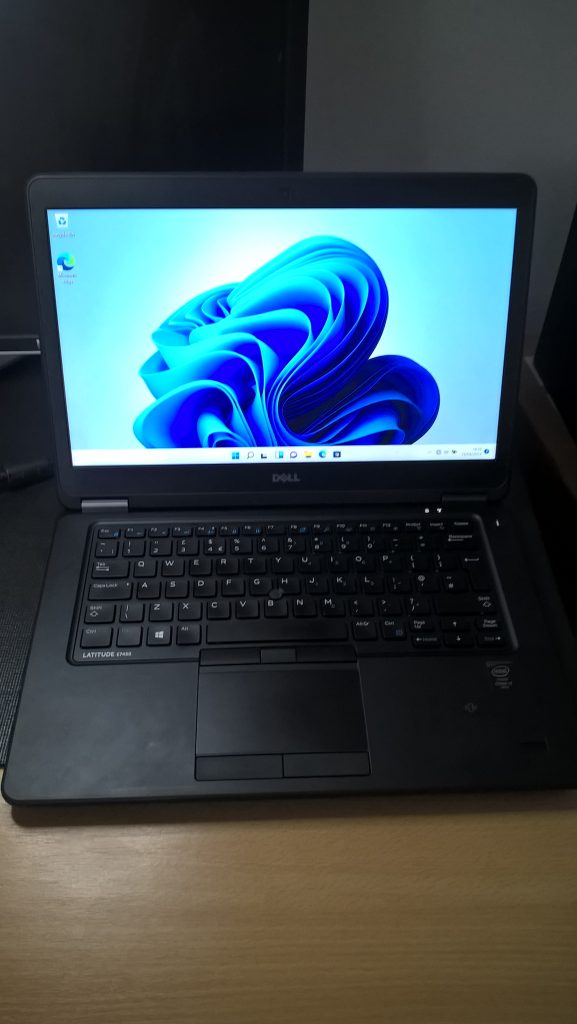Understanding the Heat Damage of MicroSD Cards: A Closer Look at the ROG Ally Experience
Introduction
In the era of gaming and portable technology, devices like the ASUS ROG Ally have gained popularity for their ability to deliver a console-like experience in a handheld format. However, like any piece of technology, the ROG Ally is not without its problems. One issue that has been documented, particularly in relation to its microSD slot, is overheating. Understanding the implications of this overheating, especially in the context of file retrieval and potential damage to data storage devices, is crucial for users who might experience similar complications when attempting to access files from damaged storage.
In this post, we’ll explore the nature and mechanics of overheating in devices like the ROG Ally, analyze possible causes of the blue screen of death (BSOD) issue experienced by users, and offer solutions, insights, and preventive measures for safeguarding your data.
The ROG Ally and Its MicroSD Slot: A Brief Overview
The ASUS ROG (Republic of Gamers) Ally is a powerful handheld gaming PC that has captured the attention of gamers. It boasts impressive specifications, designed for optimal gaming performance. However, users have reported issues with the microSD card slot, primarily centered around the device’s heating. Although the device is designed to handle demanding tasks, excessive heat can lead to technical glitches that affect performance.
Heat Issues in Tech Devices
While overheating can occur in any tech device, gaming devices are particularly susceptible due to their high-performance demands. Gamers often utilize microSD cards for extra storage, but if the slot generating excessive heat continues, it can have adverse effects on both the device and the microSD card:
-
Heat Generation: Over a prolonged period, the microSD card slot may generate considerable heat, especially if it is used extensively during gaming sessions, causing fertility in reading and writing processes.
-
Degraded Performance: As components heat up, performance can degrade. When a microSD card or its slot overheats, it can result in increased resistance in electrical connections, leading to corruption of stored data.
Effects of Heat on MicroSD Cards
MicroSD cards, while compact and convenient for storage, have their own thermal tolerance limits. Excessive heat can lead to several issues:
- Data Corruption: High temperatures can alter the molecular structure of the card’s memory cells, leading to potential data loss or corruption.
- Read/Write Failures: Thermal degradation affects the card’s ability to perform read and write operations efficiently, which could lead to failures when attempting to access files.
- Physical Damage: Prolonged exposure to high temperatures might physically damage the card, impacting its architecture and leading to irreversible data loss.
The Blue Screen of Death: Causes and Solutions
Now that we’ve established the potential problems associated with overheating, let’s dissect your experience of encountering a Blue Screen of Death (BSOD) when trying to access your microSD card.
Causes of the BSOD
The BSOD is a critical error screen displayed by the Windows operating system after encountering a fatal system error. There are multiple potential causes for a BSOD, particularly in the context of accessing a problematic storage device:
-
Driver Issues: If the driver for the microSD adapter is outdated, incompatible, or corrupted, it may cause Windows to crash when trying to access the card.
-
File System Corruption: If the microSD card has experienced data corruption due to overheating, the computer may struggle to read the file system, leading to crashes.
-
Hardware Failure: The adapter itself might have malfunctioned, or other hardware components in your computer may be affected by the drive’s instability.
-
Viruses and Malware: In some instances, particularly if the microSD card was used in an insecure environment, the file corruption might be a result of malware that affects file retrieval, leading the system to crash.
Troubleshooting Steps
If you find yourself facing the BSOD while trying to retrieve data from a microSD card, here are some steps to consider:
-
Use a Different Card Reader: Sometimes, the issue may lie with the card reader. By switching to a different adapter or card reader, you might be able to bypass the crash issue.
-
Check for Driver Updates: Before delving into advanced solutions, ensure all drivers associated with your PC hardware—particularly the card reader—are updated to the latest version.
-
Attempt Access on Another Device: Try to access the microSD card on another compatible device or operating system. This helps narrow down whether the issue is with the card or your computer.
-
Use Recovery Software: There are various Software solutions designed for Data Recovery that can help retrieve files from a corrupted microSD card, despite the overheating events.
-
Scan for Malware: Use reliable antivirus or anti-malware Software to ensure your system is free of malicious programs that could interfere with functionality.
What to Expect if Damage has Occurred
If you suspect that the microSD card has sustained damage from overheating, there are critical factors to consider:
-
Data Recovery Odds: If the data appears corrupted, the chances of recovery depend on the extent of the thermal damage. Professional recovery services may assist, but can be costly.
-
Replacement Options: If it’s determined that the microSD card is irreparable, seeking a replacement will also be necessary. Choose high-quality cards that specify robust thermal tolerances and their applications to lower risks in the future.
Preventive Measures for Future Usage
Understanding the risks posed by overheating can guide better practices in future technology use. Here are some preventive measures:
-
Cooling Solutions: When utilizing portable devices for extended gaming, natural ventilation is essential. Consider using cooling pads or ensuring that the device does not block airflow.
-
Monitor Temperature: Use Software tools to monitor temperature levels of your device while gaming. If temperatures rise too high, consider vested breaks to let the hardware cool down.
-
Quality of microSD Cards: Invest in high-quality, heat-resistant microSD cards, particularly those with Advanced Flash Technology and verified compatibility with your device.
-
Regular Backups: Always maintain regular backups of significant files or data on your microSD card. Use cloud storage, an external hard drive, or another microSD card to ensure data safety.
-
Extended Usage Practices: Limit the time spent on high workload tasks to avoid overheating. Schedule down times for your device to reduce the likelihood of overheating issues.
Conclusion
Your experience with the ROG Ally and the subsequent challenges when trying to retrieve files from the microSD card is not uncommon among users dealing with overheating issues. Understanding the connection between heat and data storage devices illuminates the importance of taking preventative measures and understanding how to handle potential data loss scenarios. By employing effective cooling strategies, proper device maintenance, and addressing any technical issues promptly, users can enjoy enhanced reliability and performance from their devices. Data integrity is invaluable; safeguarding it is in our hands. Whether through proper tech care or by employing best practices in data retrieval, we can mitigate risks and pave the way for a smoother technological experience.
Share this content:




This is a fantastic post that thoroughly addresses the critical issue of overheating in microSD cards, especially within high-performance devices like the ROG Ally. I appreciate the detailed breakdown of potential causes and troubleshooting steps—it’s crucial for users to understand that even minor oversights can lead to significant data loss.
One point I’d like to expand on is the importance of education around the selection of microSD cards. As you mentioned, investing in high-quality, heat-resistant cards is essential, but it’s also vital for users to consider the card’s speed class and endurance rating. Cards that are designed for intensive tasks, such as 4K video recording or high-speed file transfer, typically have better thermal management practices and can handle prolonged usage better than standard options. Moreover, looking for cards with built-in wear leveling features can help prolong the lifespan by managing how data is written and erased, directly mitigating the risks associated with heat generation.
Additionally, integrating a routine backup schedule can’t be emphasized enough. Many users often overlook simple backup solutions—using cloud storage or automated Software can save countless hours of Data Recovery efforts. Users should also consider the environmental factors in which they use their devices—ensuring adequate ventilation and avoiding direct sunlight can significantly influence temperature control.
Thank you for shedding light on this topic; it’s a vital conversation that can help many users maintain the integrity of their data and enhance their gaming experience.
Technical Support Response: Addressing MicroSD Card Overheating Issues
Thank you for your insightful post regarding the overheating issues with the ASUS ROG Ally’s microSD card slot. I understand how frustrating it can be when technology doesn’t perform as expected, especially during crucial gaming sessions. Here’s a structured approach to help you and others facing similar issues:
Understanding the Problem
Your post effectively outlines the risks of overheating, which can lead to data corruption and crashes such as the Blue Screen of Death (BSOD). It’s essential for users to realize that while these devices are designed for high performance, they require careful handling to maintain optimal function.
Key Troubleshooting Steps
Response to Reading Problem
Thank you for shedding light on the heat issues associated with the ASUS ROG Ally and the impact on microSD cards. I completely agree that overheating is a critical concern for users aiming to maximize performance while enjoying portable gaming.
To further elaborate on troubleshooting steps, have you considered utilizing thermal management accessories? Active cooling solutions, like external cooling fans specifically designed for handheld devices, can significantly reduce operational temperatures. Additionally, I recommend applying thermal paste improvements if feasible, as they can enhance heat dissipation between critical components.
Regarding preventative measures, I cannot stress enough the importance of regularly monitoring system temperatures using tools such as HWMonitor or MSI Afterburner. This proactive approach helps you avoid overheating scenarios before they result in hardware failure. You could also implement a simple script that automatically saves your game data at intervals; this way, you can mitigate data loss from unexpected crashes.
For Data Recovery, consider robust Software solutions such as Recuva or EaseUS Data Recovery Wizard, which are known for their effectiveness with corrupted microSD cards. However, if the damage appears extensive, professional Data Recovery services should be sought, especially if critical data is at stake.
Ultimately, your conclusion about the importance of data integrity resonates deeply. As tech users, it’s upon us to ensure we protect our assets and enjoy an uninterrupted gaming experience. Thanks again for this insightful post!